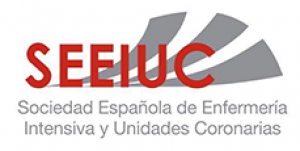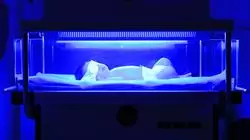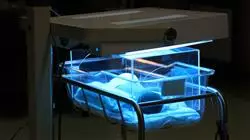University certificate
Scientific endorser

The world's largest faculty of nursing”
Introduction to the Program
With the Professional Master's Degree in Neonatal Intensive Care and Neonatal Nursing you have the opportunity to update your knowledge in a practical way and without renouncing the maximum scientific rigor, to incorporate the latest advances in newborn nursing care in the Neonatal Intensive Care Unit"

Neonatology is the continuously evolving specialty within pediatrics, that focuses on the first month of life of a newborn. In recent years, new specialized units have been created in the majority of maternity and children’s hospitals, equipped with the latest technology to provide quality care. This has contributed, to a large extent, to the decrease in neonatal morbidity and mortality. It is vital that the staff performing their duties in these units are qualified and up-to-date on the latest scientific evidence.
However, university programs in neonatology are very scarce, which is why it’s necessary to implement programs that offer health care professionals the possibility to update and broaden their knowledge and skills, in order to provide safe and high-quality nursing care for newborns.
It should also be noted that there are no other postgraduate programs like this available at a national level. Its broad and in-depth content makes this the benchmark program in the discipline. The different modules are taught in sessions with an eminently practical approach, using the latest educational technology, which allows for learning in a practical way, adapting to the needs of the professional. Therefore, you will be able to study this Professional Master’s Degree in a 100% online format, which means this program is even compatible with a full time job.
Improve the care of your patients with training offered by the Professional Master's Degree in Neonatal Intensive Care and Neonatal Nursing"
This Master’s Degree in Neonatal Intensive Care and Neonatal Nursing contains the most complete and up-to-date scientific program on the market. The most important features include:
- More than 100 clinical cases presented by experts in the different specialties. The graphic, schematic, and practical contents with which they are created provide scientific and practical information on the disciplines that are essential for professional practice
- The latest information on the nursing care of a newborn patient in intensive care
- Presentation of practical workshops on procedures, nursing care and diagnosis and treatment techniques
- An algorithm-based interactive learning system for decision-making in the clinical situations presented throughout the course
- Practical guides on different pathologies. These guides follow the scientific and pedagogical criteria of the main scientific reference
- All of this will be complemented by theoretical lessons, questions to the expert, debate forums on controversial topics, and individual reflection assignments
- Content that is accessible from any fixed or portable device with an Internet connection
This Professional Master's Degree is the best investment you can make in the selection of a refresher program for two reasons: in addition to updating your knowledge in Neonatology, you will obtain a diploma from TECH Global University"
Its teaching staff includes, renowned specialists in the field of neonatology, who bring the experience of their work in the country’s leading medical centers to this program.
Thanks to its multimedia content developed with the latest educational technology, they will allow the professional a situated and contextual learning, that is to say, a simulated environment that will provide an immersive learning programmed to prepare in real situations.
This program is designed around Problem-Based Learning, whereby the professional must try to solve the different professional practice situations that arise throughout the academic program. In order to do this, the nursing professional will be assisted by an innovative interactive video system, created by renowned and experienced experts in treating critical neonatal patients and with extensive teaching experience.
Increase your professional opportunities by taking the Professional Master's Degree in Neonatal Intensive Care and Neonatal Nursing"

It includes real clinical cases to bring the development of the program closer to everyday practice"
Why study at TECH?
TECH is the world’s largest online university. With an impressive catalog of more than 14,000 university programs available in 11 languages, it is positioned as a leader in employability, with a 99% job placement rate. In addition, it relies on an enormous faculty of more than 6,000 professors of the highest international renown.

Study at the world's largest online university and guarantee your professional success. The future starts at TECH”
The world’s best online university according to FORBES
The prestigious Forbes magazine, specialized in business and finance, has highlighted TECH as “the world's best online university” This is what they have recently stated in an article in their digital edition in which they echo the success story of this institution, “thanks to the academic offer it provides, the selection of its teaching staff, and an innovative learning method aimed at educating the professionals of the future”
A revolutionary study method, a cutting-edge faculty and a practical focus: the key to TECH's success.
The most complete study plans on the university scene
TECH offers the most complete study plans on the university scene, with syllabuses that cover fundamental concepts and, at the same time, the main scientific advances in their specific scientific areas. In addition, these programs are continuously being updated to guarantee students the academic vanguard and the most in-demand professional skills. In this way, the university's qualifications provide its graduates with a significant advantage to propel their careers to success.
TECH offers the most comprehensive and intensive study plans on the current university scene.
A world-class teaching staff
TECH's teaching staff is made up of more than 6,000 professors with the highest international recognition. Professors, researchers and top executives of multinational companies, including Isaiah Covington, performance coach of the Boston Celtics; Magda Romanska, principal investigator at Harvard MetaLAB; Ignacio Wistumba, chairman of the department of translational molecular pathology at MD Anderson Cancer Center; and D.W. Pine, creative director of TIME magazine, among others.
Internationally renowned experts, specialized in different branches of Health, Technology, Communication and Business, form part of the TECH faculty.
A unique learning method
TECH is the first university to use Relearning in all its programs. It is the best online learning methodology, accredited with international teaching quality certifications, provided by prestigious educational agencies. In addition, this disruptive educational model is complemented with the “Case Method”, thereby setting up a unique online teaching strategy. Innovative teaching resources are also implemented, including detailed videos, infographics and interactive summaries.
TECH combines Relearning and the Case Method in all its university programs to guarantee excellent theoretical and practical learning, studying whenever and wherever you want.
The world's largest online university
TECH is the world’s largest online university. We are the largest educational institution, with the best and widest online educational catalog, one hundred percent online and covering the vast majority of areas of knowledge. We offer a large selection of our own degrees and accredited online undergraduate and postgraduate degrees. In total, more than 14,000 university degrees, in eleven different languages, make us the largest educational largest in the world.
TECH has the world's most extensive catalog of academic and official programs, available in more than 11 languages.
Google Premier Partner
The American technology giant has awarded TECH the Google Google Premier Partner badge. This award, which is only available to 3% of the world's companies, highlights the efficient, flexible and tailored experience that this university provides to students. The recognition as a Google Premier Partner not only accredits the maximum rigor, performance and investment in TECH's digital infrastructures, but also places this university as one of the world's leading technology companies.
Google has positioned TECH in the top 3% of the world's most important technology companies by awarding it its Google Premier Partner badge.
The official online university of the NBA
TECH is the official online university of the NBA. Thanks to our agreement with the biggest league in basketball, we offer our students exclusive university programs, as well as a wide variety of educational resources focused on the business of the league and other areas of the sports industry. Each program is made up of a uniquely designed syllabus and features exceptional guest hosts: professionals with a distinguished sports background who will offer their expertise on the most relevant topics.
TECH has been selected by the NBA, the world's top basketball league, as its official online university.
The top-rated university by its students
Students have positioned TECH as the world's top-rated university on the main review websites, with a highest rating of 4.9 out of 5, obtained from more than 1,000 reviews. These results consolidate TECH as the benchmark university institution at an international level, reflecting the excellence and positive impact of its educational model.” reflecting the excellence and positive impact of its educational model.”
TECH is the world’s top-rated university by its students.
Leaders in employability
TECH has managed to become the leading university in employability. 99% of its students obtain jobs in the academic field they have studied, within one year of completing any of the university's programs. A similar number achieve immediate career enhancement. All this thanks to a study methodology that bases its effectiveness on the acquisition of practical skills, which are absolutely necessary for professional development.
99% of TECH graduates find a job within a year of completing their studies.
Professional Master's Degree in Neonatal Intensive Care and Neonatal Nursing
At TECH Faculty of Nursing we want to facilitate the updating of the knowledge of healthcare professionals through this Professional Master's Degree in Neonatal Intensive Care and Neonatal Nursing, developed using the latest advances that allow optimal care of the newborn; especially in situations where intensive care is necessary. According to the World Health Organization (WHO), some 15 million premature infants are born each year; however, 75% of these babies are able to pull through thanks to the knowledge and consistent care of the healthcare personnel around them at the time of birth.
Course a Professional Master's Degree in Neonatal Intensive Care and Neonatal Nursing
To cope with the growing need for intensive care in newborn babies, especially when delivery takes place before 37 weeks of gestation, medical centers require specialized staff in neonatal nursing. Through our one-year, completely online Professional Master's Degree in Neonatal Intensive Care and Neonatal Nursing, you will become a professional in high demand by clinics and hospitals, prepared to respond to all kinds of difficulties before, during and after birth.
Study a postgraduate program in nursing completely online
If among your personal and work goals is to become a nurse with up-to-date knowledge, stand out above other nursing professionals, demonstrate your value to employers or patients and increase your chances of advancement in the health area that most interests you, it is essential to study this postgraduate program from TECH Global University.







